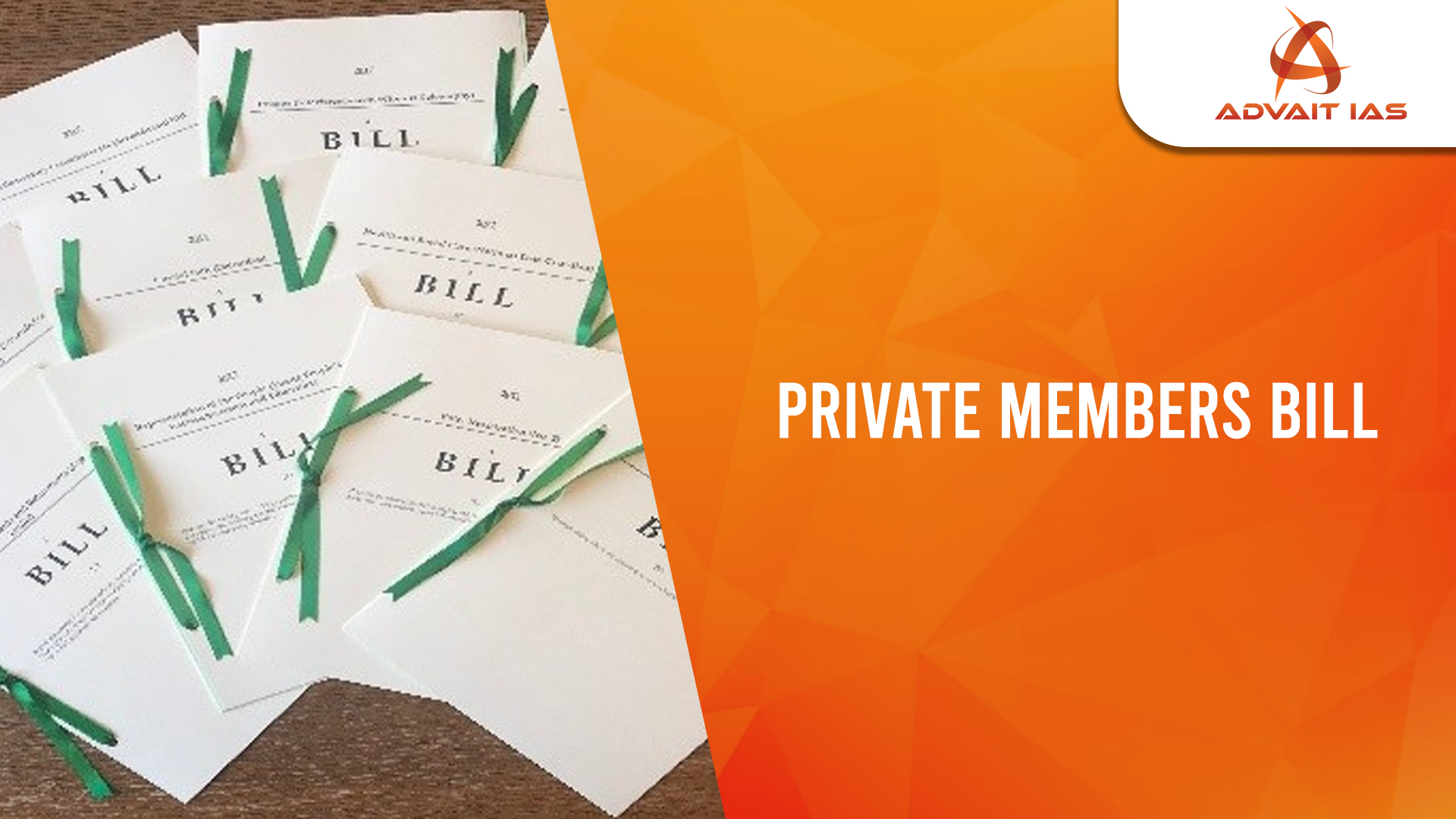Private Member’s Bills
- PMBs are legislative proposals introduced by Members of Parliament (MPs) who are not Ministers.
- They represent individual viewpoints, constituency interests, or alternative policy ideas.
- PMBs can be introduced in both Lok Sabha and Rajya Sabha.
- Discussion on PMBs is usually scheduled for Fridays in Parliament.
- Unlike government bills, PMBs do not represent the executive’s legislative agenda.
Trends in Recent Lok Sabhas
- 17th Lok Sabha (2019–2024):
- 729 PMBs introduced, but only 16 were discussed.
- 18th Lok Sabha (2024–present):
- Only 20 MPs have introduced PMBs so far.
- This indicates a declining trend in deliberation and legislative productivity with respect to PMBs.
Notable Examples of PMBs
- Rights of Transgender Persons Bill (2014):
- Introduced by Tiruchi Siva, passed in Rajya Sabha.
- First PMB to be passed in over 40 years.
- Later influenced the Transgender Persons (Protection of Rights) Act, 2019.
Challenges Faced by PMBs
- Limited time allocation (only Fridays; often disrupted).
- Low priority in legislative business compared to Government Bills.
- Anti-Defection Law restricts MPs from diverging from party lines, reducing the scope for individual legislative initiatives.
- Frequent adjournments and disruptions of Parliament reduce chances of debate.
- Executive dominance in legislative agenda leaves little space for PMBs.
Reforms to Enhance PMB Effectiveness
- Protect and enforce time exclusively for PMB discussions.
- Create a Review Committee to vet and shortlist PMBs of public relevance and high impact.
- Introduce a Fast-Track Mechanism for promising PMBs.
- Extend parliamentary working hours on Fridays or during special sessions.
- Encourage bipartisan support for select PMBs to increase their legitimacy and passage chances.
International Best Practices
- United Kingdom:
- Ten-Minute Rule: Allows MPs to propose PMBs with a brief speech.
- PMBs are introduced on designated days and often backed by cross-party support.
- Canada & Australia:
- Similar provisions exist where private members are given structured opportunities to introduce bills.
PMBs are a vital tool of participatory democracy, allowing MPs to represent public concerns and suggest innovative policies. Their declining influence reflects the need for parliamentary reforms to restore deliberative democracy. Strengthening the PMB process will enhance legislative diversity, accountability, and public trust in democratic institutions.






